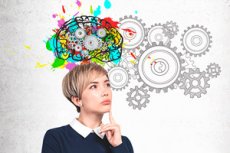Medical expert of the article
New publications
Critical thinking: the key to modern education and success
Last reviewed: 30.06.2025

All iLive content is medically reviewed or fact checked to ensure as much factual accuracy as possible.
We have strict sourcing guidelines and only link to reputable media sites, academic research institutions and, whenever possible, medically peer reviewed studies. Note that the numbers in parentheses ([1], [2], etc.) are clickable links to these studies.
If you feel that any of our content is inaccurate, out-of-date, or otherwise questionable, please select it and press Ctrl + Enter.

In today's world, where information is available at the click of a button and opinions are often taken on faith, critical thinking comes to the forefront as one of the most valuable skills. It is the ability to analyze facts, distinguish falsehoods from truth, identify bias and logical fallacies, and construct sound arguments. In this article, we will discuss what critical thinking is, why it is important, and how it can be developed.
What is critical thinking?
Critical thinking is intelligent, reflective thinking aimed at making decisions about what to believe or what to do. It is the process of evaluating claims and arguments without blindly accepting them on faith. A critical thinker asks questions, looks for evidence, analyzes arguments, and looks at a problem from different angles.
Why is critical thinking important?
- Informed Decision Making: Critical thinking allows you to separate reliable data from manipulative information to inform decisions in your personal and professional life.
- Problem Solving: Critical thinking competencies are vital for analyzing complex problems and finding effective solutions.
- Self-development and learning: Critical thinking helps you learn from your mistakes, effectively master new knowledge, and continually grow as a person.
- Civic Responsibility: In the age of social media and fake news, critical thinking is necessary to evaluate the credibility of information and participate responsibly in public life.
How do you develop critical thinking?
- Ask Questions: Always look for more information and ask questions: Who said? Why is it important? What is the evidence?
- Analyze arguments: Evaluate arguments in terms of their logicality and reliability of evidence.
- Practice problem solving: Practice solving a variety of problems, which helps develop flexibility of thinking and the ability to find non-trivial solutions.
- Study logic and argumentation: Knowledge of logical structures and argumentation techniques improves your ability to analyze statements and form your own persuasive arguments.
- Discuss and defend your point of view: Regular discussions and debates teach you to justify your position and be critical of others' opinions. It also helps to develop the skill of listening and understanding others' points of view.
- Learn Cognitive Distortions: Understanding how biases and perceptual distortions can influence our thinking helps us avoid these traps.
- Develop emotional intelligence: The ability to manage your own emotions and understand the emotions of others is an important part of critical thinking.
- Read widely and diversely: Reading literature from a variety of genres and backgrounds promotes critical thinking and analytical skills.
- Write regularly: Writing forces you to structure your thoughts, clearly articulate ideas and arguments, which promotes critical thinking.
- Play mind games: Chess, puzzles, and logic games improve the ability to strategically plan, analyze, and anticipate consequences.
Improving critical thinking through technology and innovation
In today's world, technology plays an important role in the development of critical thinking. Digital tools and educational platforms offer a variety of methods to improve this skill:
- Online Courses and MOOCs: Massive Open Online Courses (MOOCs) in critical thinking help you learn theoretical aspects and practice their application through interactive assignments and discussion forums.
- Educational Apps: Game and educational apps designed to develop logical skills and critical thinking can be useful for both children and adults.
- Interactive Simulations: Simulations of real-life scenarios and problems that require users to make decisions, develop the ability to analyze situations and make meaningful choices.
- Online forums and debates: Participating in online debates and discussions on topical issues teaches you to defend your point of view and respect others'.
- E-books and Resources: The rich library of resources available on the Internet provides an opportunity to explore the opinions and analyses of a variety of authors, which broadens one's horizons and critical perception of information.
Practicing critical thinking in everyday life
The development of critical thinking is not limited to the educational environment. There are numerous opportunities to practice it in everyday life:
- Analyzing news and articles: Regularly analyzing and evaluating information presented in the media helps develop the skill of distinguishing facts from opinions.
- Solving everyday problems: Making considered decisions in everyday situations, from shopping to planning a vacation, requires researching alternatives and anticipating their consequences.
- Self-reflection: Regular self-reflection on one's actions and decisions contributes to the development of self-criticism and self-awareness.
Critical thinking is a valuable skill in a rapidly changing world where information and data are constantly updated and can be distorted. The development of this skill should be continuous and multifaceted, including training, self-education and daily practice.
Critical thinking is not an inborn talent, but a skill that can be developed and strengthened through deliberate practice and training. It is of key importance in education, professional life and personal life. Learning to think critically should be integrated into educational programs at all levels and continue throughout life, as it contributes to the development of an independent individual capable of making informed decisions and participating responsibly in public life.

